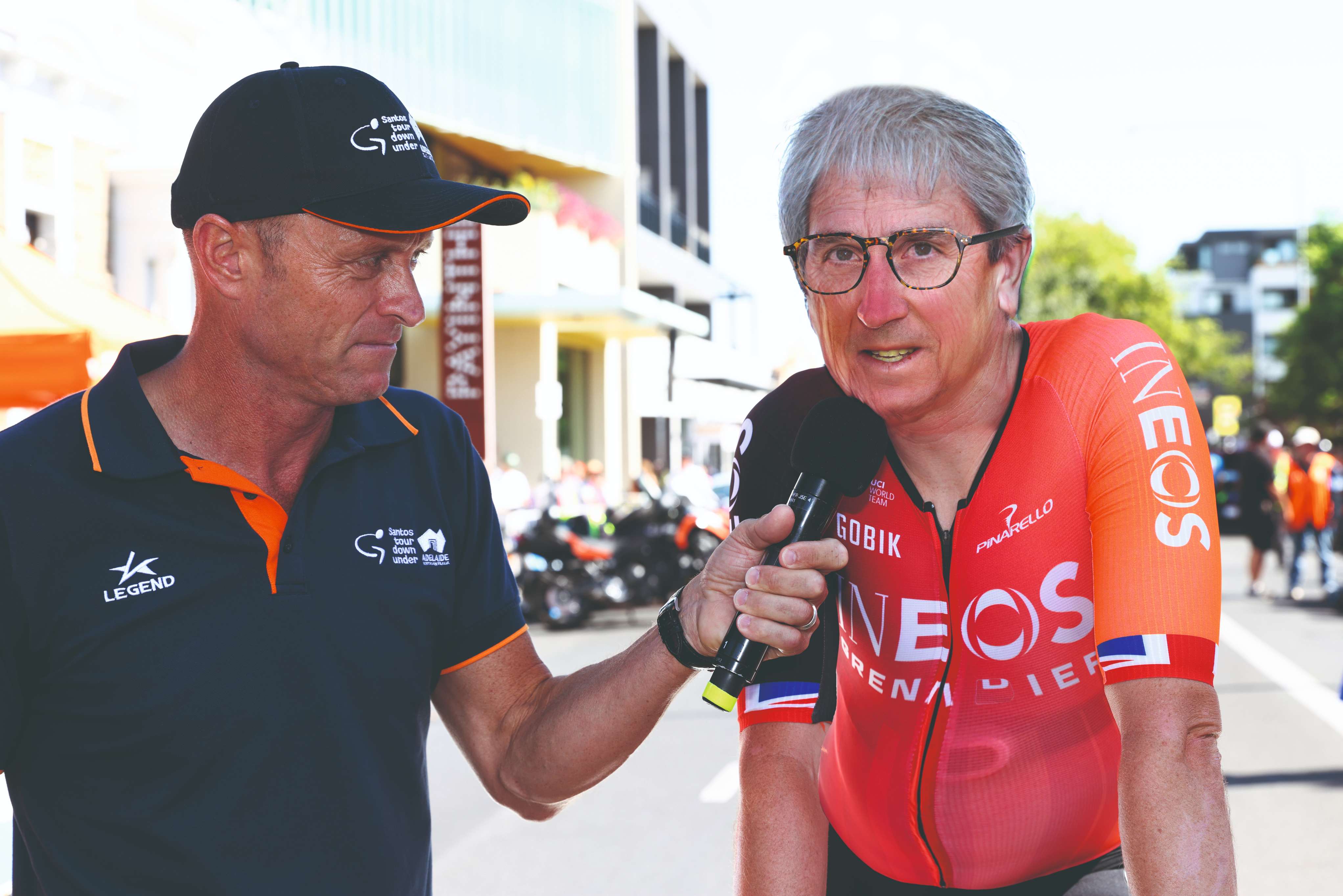
I have often had reason to question what goes on inside the head of my friend Bernard. For instance, I strongly suspect that the only reason he’s ever made any progress at all in the world of bike riding is that when he was about four-yearsold someone told him he’d never be able to ride a bike without stabilisers and he did it just to prove them wrong. And everything that he’s done since would just be follow-through.
Once, collecting an uncharacteristic “win” at the end of a chaingang, he messaged to say, “You told me I’d never win a chaingang sprint!”
I told him that I’d never said any such thing. And I hadn’t. It was totally unnecessary to say anything quite that obvious out loud. But I was, as ever, only too happy to have helped.
Putting yourself through hell to prove people wrong has quite a history. Greg Van Avermaet put his 2016 Olympic title down to a need to get one back at everyone who said the course was too hard for him. And most of what Geraint Thomas - who recently confirmed he will retire at the end of this season - has done since 2019 has been about disproving people who said he just got lucky when he won the Tour.
This sort of thing is a source of motivation much favoured by the more middle-aged demographic. I suspect that without an instinct for vengeance there would be no pro bike riders over the age of 30. If you want to know why pros retire later and later, look no further than social media. If we all work together we can make sure Geraint’s inner demons won’t let him retire till he’s 50.
It’s something that I’ve found coming up more and more in conversations with riders and coaches. I’ve always worried that perhaps it’s a negative way to look at things. More positive sources of motivation are things like self-fulfillment, setting yourself a challenge and rising to it, or testing your own limits.
The thing is, though, that I’m not sure how much these wholesome sources of inspiration exist outside the worlds of sports psychology and carefully curated post-race interviews. I might be giving away too much about myself, but I suspect the negative motives outweigh the positive ones.
It’s not just vengeance. There are other dark motives. Personally, I’d have to say that I have often been driven on by the sunk-cost argument. Why am I grinding out the final hour of a miserable winter ride? Because if I don’t do the final hour, the earlier hours will have been wasted, and I wouldn’t want to have been through all that wet and cold for nothing. If you start a job you should finish it, however misguided starting it might have been in the first place.
There are overlaps in the Venn diagram of “negative” and “plain weird”. I am aware of one rider whose best-ever season was fuelled by a divorce. He couldn’t bear to be in the same house as his spouse, so he was inspired to rack up an awful lot of training instead. He even thanked her at a prize-giving for being too unpleasant to live with. I like to imagine their children are still working through the transcript of this speech with a therapist, and maybe using it to power through interval sessions.
But the big question is this: are there really any bad sources of motivation? Surely, if it helps you to achieve something, and that something is worth doing, it’s been a positive? As long as it’s getting you through the hard bits, it’s been worth it.
Obviously if the darkness is something that goes beyond cycling and into a proper disorder, we’d need to think again, but as long as it’s localised I think it’s OK.
Although we shouldn’t tug on that “proper disorder” thread too hard.
This article was originally published in Cycling Weekly magazine. Subscribe now and never miss an issue.







